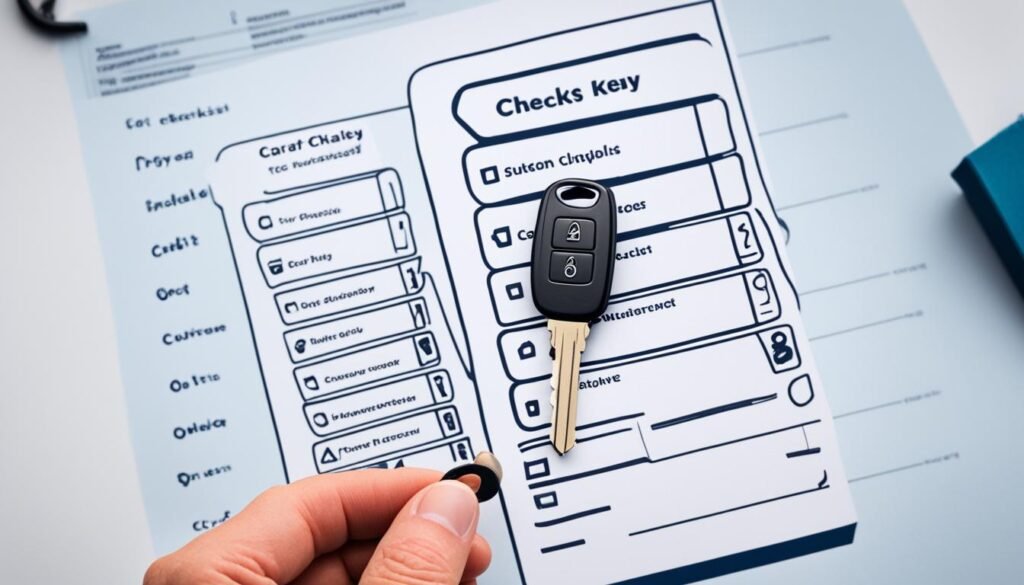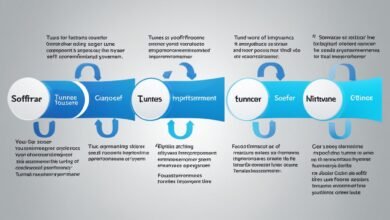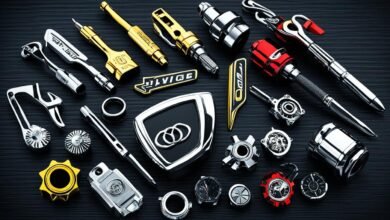Essential Car Buying Guide: 10 Things Every Buyer Must Know

Welcome to our comprehensive car buying guide! Whether you’re a first-time car buyer or looking to upgrade your current vehicle, we’re here to help you make informed decisions. With our essential car buying tips and advice, you’ll be well-equipped to find the perfect car that suits your needs and budget.
When it comes to buying a car, there are several factors to consider. From the type of vehicle to your budget and everything in between, making the right choices can save you time, money, and headaches down the road. Our guide covers key car buying advice and provides a handy car buying checklist to ensure you don’t overlook any important details.
For first-time car buyers, it can feel overwhelming. But worry not, we’ve got you covered. With our important tips for first-time car buyers, you’ll gain the confidence and knowledge necessary to navigate the car buying process with ease. We’ll help you understand the important factors to consider when buying a car and empower you to make the best decision for your lifestyle and preferences.
Key Takeaways:
- Understand your budget before starting the car buying process.
- Research different car models to find the one that suits your needs.
- Create a car buying checklist to stay organized and focused.
- Consider factors such as fuel efficiency, safety features, and maintenance costs.
- Take a test drive to ensure the car meets your comfort and performance expectations.
10 Things Every Car Buyer Must Know
In this section, we will delve into the ten things every car buyer must know. Whether you’re a first-time buyer or looking to upgrade your current vehicle, these tips will help you make an informed decision when purchasing a new car.
1. Understand Your Budget
Before starting your car buying journey, it’s important to have a clear understanding of your budget. Consider your finances, including loan payments, insurance costs, and maintenance expenses, to determine how much you can comfortably afford. This will help narrow down your options and prevent you from overspending.
2. Research Different Car Models
Take the time to research different car models that suit your needs and preferences. Consider factors such as fuel efficiency, safety features, performance, and reliability. Reading reviews and comparing specifications will give you valuable insights into the pros and cons of each model.
3. Determine Your Needs
Identify your specific needs and priorities in a car. Do you need ample passenger space, cargo capacity, or advanced technology features? Understanding your needs will help you focus on the models that align with your requirements.
4. Consider Long-Term Costs
It’s important to consider the long-term costs associated with owning a car. Look into factors such as fuel economy, insurance premiums, maintenance and repair expenses, and depreciation. This will give you a realistic idea of the total cost of ownership over time.
5. Take Test Drives
Always test drive a car before making a final decision. This will give you a feel for the vehicle’s handling, comfort, and overall performance. Pay attention to features such as steering, braking, acceleration, and visibility.
6. Research Financing Options
Explore different financing options to determine which one works best for you. Consider factors such as interest rates, loan terms, and monthly payments. It’s advisable to get pre-approved for a loan to streamline the buying process.
7. Check Vehicle History
Whether you’re buying a new or used car, it’s essential to check the vehicle’s history. This includes details about previous owners, accidents, and maintenance records. A thorough history check will help you make an informed decision and avoid potential issues down the road.
8. Negotiate the Price
Don’t be afraid to negotiate the price when buying a car. Research the fair market value of the vehicle and use this information to negotiate with the seller. Be prepared to walk away if the deal doesn’t meet your expectations.
9. Read the Fine Print
Before signing any documents, carefully read through the fine print. Pay attention to warranty details, return policies, and any additional fees or charges. Understanding the terms and conditions will ensure there are no surprises after the purchase.
10. Trust Your Instincts
Finally, trust your instincts when buying a car. If something doesn’t feel right or seems too good to be true, it’s better to walk away. Listen to your intuition and choose a vehicle that you feel confident and comfortable with.

By following these ten essential tips for buying a new car, you’ll be well-prepared to make a smart and informed decision. Remember to consider your budget, research different car models, and thoroughly evaluate each vehicle before making a purchase. With these insights, you’ll be on your way to finding the perfect car to meet your needs and preferences.
Conclusion
After going through our comprehensive car buying guide, you now have the essential tips and knowledge to ensure a successful car buying experience. By familiarizing yourself with the ten things every car buyer must know, you can confidently navigate the car buying process and find the best car that suits your needs and preferences.
One of the key takeaways from this guide is the importance of considering your budget. Understanding your financial limitations will help you narrow down your options and prevent overspending. Additionally, researching different car models allows you to compare features, prices, and reliability to make an informed decision.
Creating a car buying checklist is another crucial step. From determining your must-have features to conducting thorough inspections and test drives, a checklist ensures that you don’t overlook any important aspects during the buying process.
With these valuable insights, you are now well-equipped to find your perfect vehicle. Remember to stay patient and diligent throughout the car buying journey. Happy car hunting!




